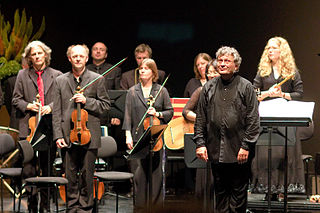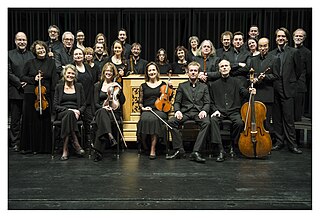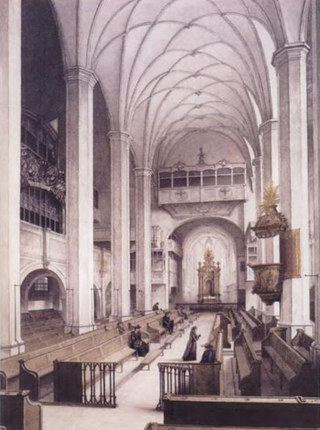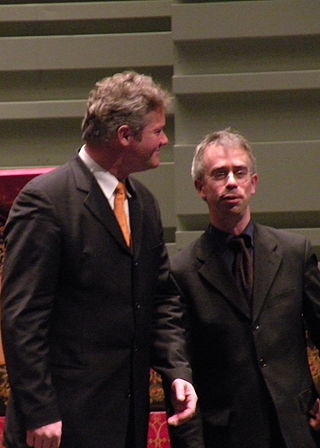History
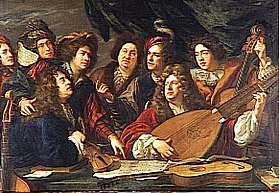
The ensemble was brought together in 1972 by Sigiswald Kuijken, originally for the one-off purpose of recording Lully's comédie-ballet, Le Bourgeois gentilhomme , conducted by Gustav Leonhardt for the Deutsche Harmonia Mundi label. The ensemble was given its name from Lully's Petite Bande des Violons du Roi , an orchestra of 21 string players at the court of Louis XIV. [3] The nucleus of the original group was the Leonhardt Consort along with Sigiswald Kuijken and his brothers Wieland and Barthold. [4] Following the recording, the group continued to give concerts throughout Europe and became a permanent ensemble based in Leuven with Kuijken as director. Their initial repertoire concentrated on French Baroque music, but soon branched out into Italian and German composers, including Corelli, Handel and Bach. They also branched out from the Baroque to the Classical period with performances and recordings of works by Haydn and Mozart. The ensemble's 1982 recording of Haydn's The Creation was the first time the work had been recorded using period instruments. [5] Their UK debut was at the 1982 BBC Proms, with a concert of pieces by Bach, Handel, and Rameau. The critic Barry Millington described the performance in The Musical Times :
The group has an endearing attitude of indifference to concert platform ritual: each player is dressed for a different occasion. But there is nothing casual about their playing: this is some of the best-disciplined Baroque playing to be heard today. [6]
La Petite Bande's recordings of operatic rarities during their first ten years include Rameau's Zoroastre , Zaïs , and Pigmalion as well as Campra's L'Europe galante and Grétry's Le jugement de Midas . From 2006 to 2012, the ensemble has largely concentrated on Bach, especially his cantatas with the goal of recording a complete liturgical year, [7] but also his St John Passion , St Matthew Passion and Mass in B minor. Singers in these projects, each part sung by one singer, have included sopranos Gerlinde Sämann, Barbara Schlick, Elisabeth Scholl and Siri Thornhill, altos René Jacobs and Petra Noskaiová, tenors Christoph Genz, Christoph Prégardien and Marcus Ullmann, and basses Jan van der Crabben, Max van Egmond and Harry van der Kamp.
On 2 February 2009, Sigiswald Kuijken was awarded the Prize for Cultural Merit by the Belgian government. [8] The following day, the advisory committee of the Ministry of Culture recommended that La Petite Bande's 600,000 euro annual subsidy be removed. Kuijken's students started an internet petition to save the subsidy which received 21,000 signatures. [9] The Minister of Culture at the time, Bert Anciaux, ignored the advice of the committee and restored the subsidy until 2012 (reduced to 590,000 euro). The ensemble has since started a charitable foundation, Support La Petite Bande, to make up the shortfall. [9] Some funding was subsequently granted for 2013 to 2016.
In 2011, Kuijken decided to leave the future direction of the ensemble to younger musicians and chose the organist Benjamin Alard to direct a new Handel project which began in April 2013. [10]

